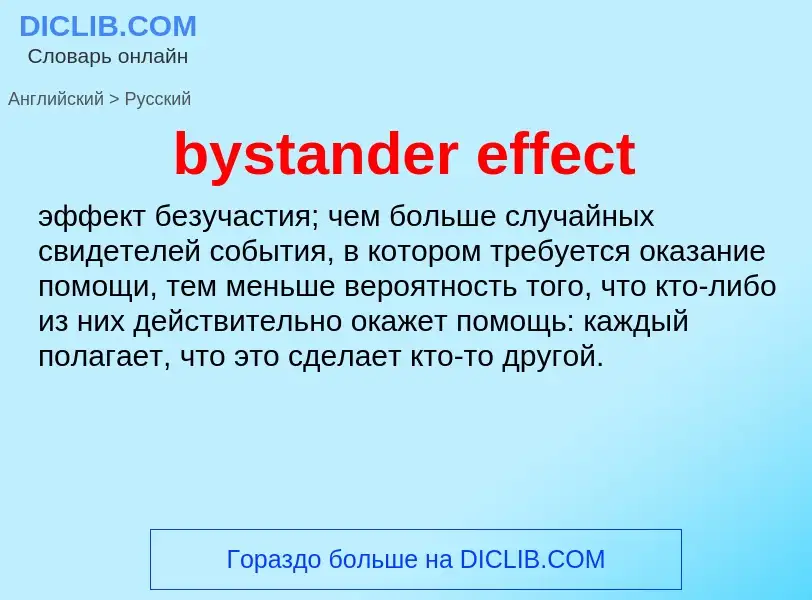Vertaling en analyse van woorden door kunstmatige intelligentie ChatGPT
Op deze pagina kunt u een gedetailleerde analyse krijgen van een woord of zin, geproduceerd met behulp van de beste kunstmatige intelligentietechnologie tot nu toe:
- hoe het woord wordt gebruikt
- gebruiksfrequentie
- het wordt vaker gebruikt in mondelinge of schriftelijke toespraken
- opties voor woordvertaling
- Gebruiksvoorbeelden (meerdere zinnen met vertaling)
- etymologie
bystander effect - vertaling naar russisch
['baistændə]
существительное
общая лексика
свидетель (происходящих событий)
(безучастный) наблюдатель
свидетель
наблюдатель
Definitie
Wikipedia
The bystander effect, or bystander apathy, is a social psychological theory that states that individuals are less likely to offer help to a victim in presence of other people. First proposed in 1964 after the murder of Kitty Genovese, much research, mostly in psychology research laboratories, has focused on increasingly varied factors, such as the number of bystanders, ambiguity, group cohesiveness, and diffusion of responsibility that reinforces mutual denial. If a single individual is asked to complete the task alone, the sense of responsibility will be strong, and there will be a positive response; however, if a group is required to complete the task together, each individual in the group will have a weak sense of responsibility, and will often shrink back in the face of difficulties or responsibilities. The theory was prompted by the murder of Kitty Genovese about which it was wrongly reported that 38 bystanders watched passively. Recent research has focused on "real world" events captured on security cameras, and the coherency and robustness of the effect has come under question. More recent studies also show that this effect can generalize to workplace settings, where subordinates often refrain from informing managers regarding ideas, concerns, and opinions.

